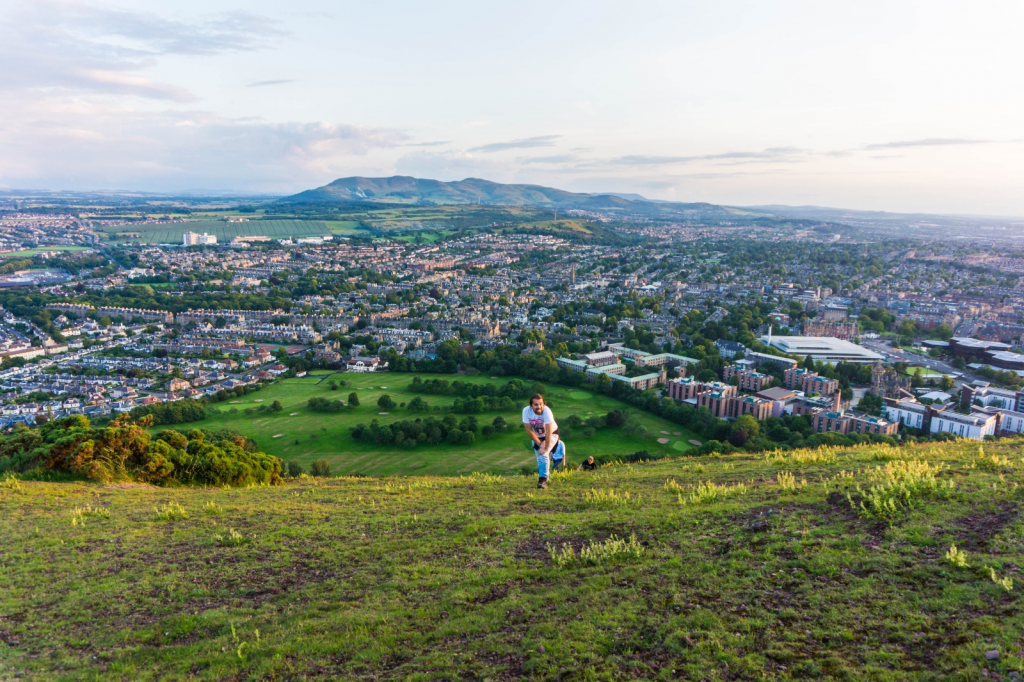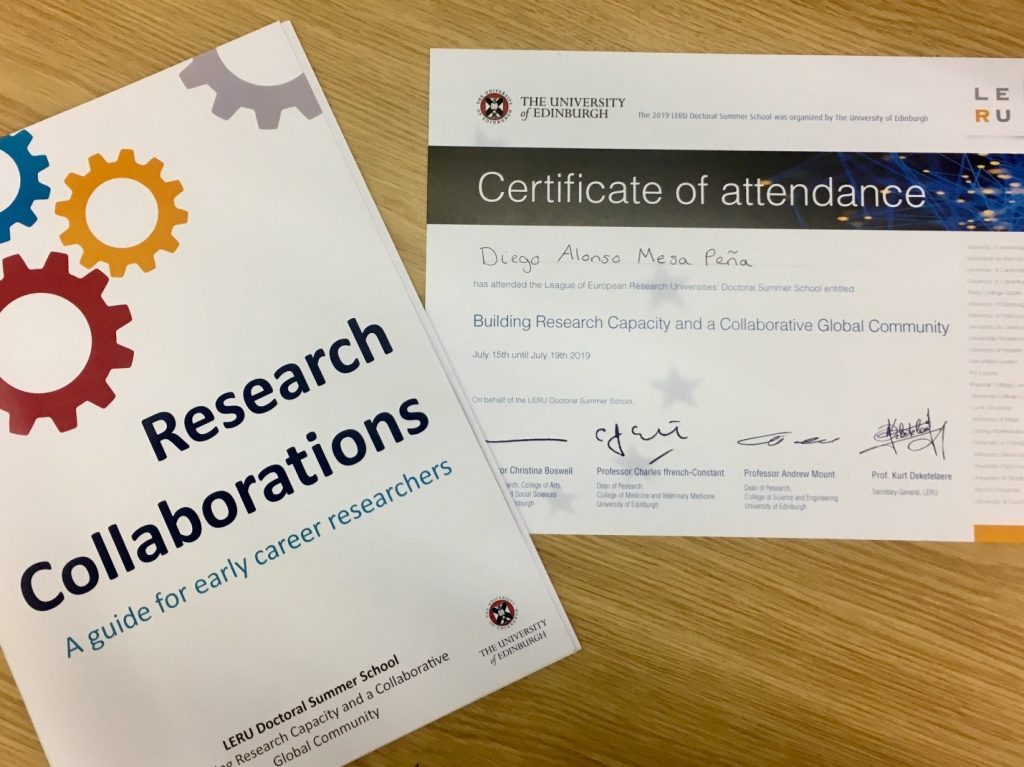LERU Doctoral Summer School 2019 – Building Research Capacity and a Collaborative Global Community
by Diego Mesa, PhD student in the Department of Earth Science and Engineering
This year the University of Edinburgh, a member of the League of European Research Universities (LERU), hosted in July the 9th LERU Doctoral Summer School. The main focus of the Summer School was on Collaboration in Research, aiming to develop a guidebook for early career researchers on effective collaboration.
My name is Diego Mesa and I’m a 3rd year PhD student in the Advanced Mineral Processing Research Group of Imperial College London. When I saw the Graduate School’s invitation to be part of this activity, I knew I had to apply. Not only is my area of research fundamentally based on the inter-sectorial collaboration among universities, companies and other stakeholders, but also my personal interests lie in international collaboration. Being of Chilean origin, I had the honour of representing the Latin American community of Imperial College as President of the Society for the 2017-2018 academic year. Hence, I have seen first-hand the impact that international research projects can have on our countries and communities. I was indeed thrilled and honoured to be selected to represent Imperial College at this Summer School.
As a pre-course activity, we were asked to interview an established and successful researcher about their views and experiences in collaboration projects. I decided to interview Prof. Mark Rehkämper, a specialist in Mass Spectrometry and Isotope Geochemistry of the Earth Science and Engineering Department. His insights were key and influential in informing my understanding of collaborative projects. This enabled me to participate effectively in the debates that we eventually had during the Summer School activities. It was amazing to see that so many professors were absolutely open and willing to share their research experiences. I would firmly encourage other students to get in touch with other professors and perform such interviews.
Months passed quickly, as they do during your Ph.D., and the date for my trip to Edinburgh arrived. It was my first time in Scotland, so I was blown away by the architecture, the landscapes and how friendly the people were (under that thick accent).

On the first day, I got to meet the rest of the participants. We were 52 Ph.D. researchers from 23 different universities, different countries, and cultures. However, what surprised me the most was the diversity of research topics represented amongst us. My scientifically oriented mind tricked me when I read the title of the Summer School, thinking that I’d be surrounded by STEM-researchers. There were: lawyers, philosophers, historians, artists, scientists, engineers amongst many others.
The Summer School was much tougher than I had anticipated. Each day involved an action-packed agenda. Usually we would start the day with some keynote talks by researchers and members of staff of the University of Edinburgh, which allowed us to gain novel insights about different aspects of collaboration. We would then divide into small groups to analyse and write different sections of the guidebook. I would have never though it possible that one could write a quality piece of work in one week involving more than 50 authors. Fortunately, this was all brought together by the masterful guidance of the organisers and we were able to create an amazing guidebook.

However, not everything was hard work. We learnt that many collaborations start in the pub and that the strength of the social relationship between partner is key to a successful collaboration… so, we decided to put that piece of advice to practice quickly! On the first day, we went on the Scotch Whisky Experience and then for a lovely dinner altogether. For the rest of the week, we would spontaneously meet in the pub after classes or for outdoor activities. We climbed the Arthur’s Seat, went on a walking tour around Edinburgh and even danced the traditional Ceilidh with bagpipes!

Our last day was very moving as we got to see the last draft of our guidebook. We were honoured by the presence of Professor Kurt Deketelaere, Secretary-General of LERU at the closing ceremony, where he remarked on the importance of collaboration among our elite universities. This is important not only for the advancement of science and knowledge, but also for the further development of global communities able to work and live in harmony, respecting and embracing our diversity. Five participants (including me!) volunteered to introduce the guidebook to him. We explained the contents, the process of development and the impact of the work we all had just performed that week. Finally, Dr Sara Shinton, organiser and moderator of the whole process, revealed a cake featuring the design of our collaboration guide!


In conclusion, the LERU Summer School was an amazing and engaging experience, where we were able to collaborate and develop our guidebook! We anticipate that this guide will help many researchers globally to engage effectively in more collaborative projects in the future. Finally, I also met amazing people along the way, who came from all over Europe. This both expanded my professional networks and allowed me to develop some great friendships. I look forwards to meeting everyone again soon!








